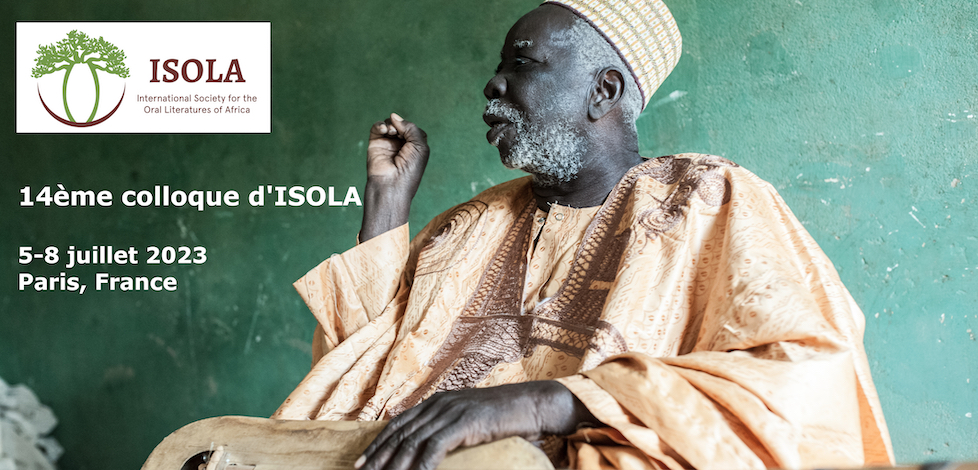This paper discusses the spiritual, supernatural aspects of the snake, and the ways in which this being has long been associated with various spiritual presences and forces in certain South African belief systems. More recently, however, snakes have become increasingly connected to sinister aspects of the occult. These diverse images of the snake are depicted in various South African oral narratives, and also in certain works of South African fiction, such as A.C. Jordan's The Wrath of the Ancestors, and in popular culture and the social media.
Oral narratives from the Eastern Cape province that convey these contrasting, changing perceptions of the snake are analysed, and the reasons for the changes this being has undergone in South African orality and spirituality and perceptions of the supernatural are explored.
This paper highlights the significance of those oral narratives that convey positive, benevolent images of the snake, as spiritual emissaries, guardians and guides. Snakes, then, form an integral part of the spiritual order in Eastern Cape cosmology and the oral narratives that reflect this, just as they form part of the ecological balance in the natural world. Ways of seeing that promote a greater awareness of and reverence for the creatures with which we share the planet have the potential to contribute to more harmonious, holistic ecological perspectives. In this time of environmental devastation and an ever-intensifying climate crisis, such perceptions are much-needed, and various oral narratives, including some of those examined in this paper, have a valuable role to play in this regard.
Felicity Wood is employed at the University of Fort Hare, South Africa. Her particular area of research interest is the way in which contemporary western and westernised societies are steeped in aspects of mystery, mythmaking, ritual and metaphorical magic, especially in economic and socio-political contexts and the present-day workplace. Since 2003, she has been conducting research into the mamlambo, a South African wealth-giving spirit, and wealth-giving magic in South Africa. She has published many papers in this area, and she is currently working on a book. She has also published a book entitled The Extraordinary Khotso: Millionaire Medicine Man from Lusikisiki. which investigates magic as a marketable commodity, focusing on the life of the near-legendary South African inyanga (medicine man) Khotso Sethuntsa. She has also written Universities and the Occult Rituals of the Corporate World: Higher Education and Metaphorical Parallels with Myth and Magic, which explores the occult aspects of contemporary higher education and free-market capitalism. In this and other related research, she explores the mystical, metaphorically magical aspects of consumer capitalism, notions of the market, neoliberal economic myths and commodity fetishism.
Du faiseur de pluie au bienfaiteur : les formes changeantes du serpent dans les systèmes de croyance sud-africains et l'oralité
Cet article traite des aspects spirituels et surnaturels du serpent et de la façon dont cet être a longtemps été associé à diverses présences et forces spirituelles dans certains systèmes de croyance sud-africains. Plus récemment, toutefois, les serpents ont été de plus en plus liés aux aspects sinistres de l'occulte. Ces images du serpent sont décrites dans divers récits oraux sud-africains, ainsi que dans des œuvres de fictions sud-africaines, comme the Wrath of the Ancestors (La colère des ancêtres) d'A. C. Jordan, ainsi que dans la culture populaire et dans les médias sociaux.
Nous analysons les récits oraux de la province du Cap Oriental, qui véhiculent des perceptions contrastées et changeantes du serpent et nous explorons les raisons des changements que cet être subit dans l'oralité, la spiritualité et les perceptions du surnaturel. sud-africaines
Cet article souligne l'importance des récits oraux qui véhiculent des images positives et bienveillantes du serpent, en tant qu'émissaire spirituel, gardien et guide. Les serpents font donc partie intégrante de l'ordre spirituel de la cosmologie du Cap Oriental et des récits oraux qui le reflètent, tout comme ils font partie de l'équilibre écologique du monde naturel. Les manières de voir, qui favorisent une plus grande prise de conscience et un plus grand respect des créatures avec lesquelles nous partageons la planète, ont le potentiel de contribuer à des perspectives écologiques plus harmonieuses et holistiques. En ces temps de dévastation de l'environnement et de crise climatique qui ne cesse de s'intensifier, de telles perceptions sont indispensables, et divers récits oraux, dont certains sont examinés dans cet article, ont un rôle précieux à jouer à cet égard.
Felicity Wood travaille à l'université de Fort Hare, en Afrique du Sud. Son domaine de recherche particulier est la manière dont les sociétés occidentales et occidentalisées contemporaines sont imprégnées de mystères, de mythes, de rituels et de magie métaphorique, en particulier dans les contextes économiques et sociopolitiques et sur le lieu de travail actuel. Depuis 2003, elle mène des recherches sur le mamlambo, un esprit sud-africain qui donne des richesses, et sur la magie qui donne des richesses en Afrique du Sud. Elle a publié de nombreux articles dans ce domaine et travaille actuellement à la rédaction d'un livre. Elle a également publié un livre intitulé The Extraordinary Khotso : Millionaire Medicine Man from Lusikisiki, qui étudie la magie en tant que produit commercialisable, en se concentrant sur la vie de l'inyanga (homme-médecine) sud-africain quasi-légendaire Khotso Sethuntsa. Elle a également écrit Universities and the Occult Rituals of the Corporate World : Higher Education and Metaphorical Parallels with Myth and Magic, qui explore les aspects occultes de l'enseignement supérieur contemporain et du capitalisme de marché. Dans cette recherche et dans d'autres recherches connexes, elle explore les aspects mystiques et métaphoriquement magiques du capitalisme de consommation, les notions de marché, les mythes économiques néolibéraux et le fétichisme de la marchandise.

 PDF version
PDF version
